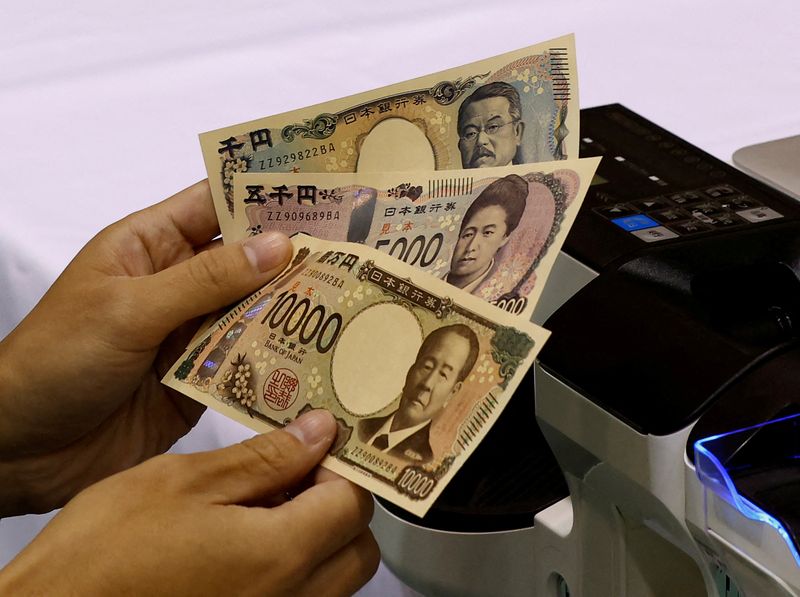By Leika Kihara
TOKYO (Reuters) - Japan likely won't seek to reverse the yen's downtrend with exchange-rate intervention as recent falls reflect economic fundamentals, former top currency diplomat Naoyuki Shinohara told Reuters.
There is no set rule or shared agreement among G7 advanced nations on what kind of currency moves are defined as "excess volatility" that justify intervention, Shinohara said.
"But usually, when you talk about excess volatility you have in mind a timeframe of several days or weeks," rather than several months, he said in an interview on Friday.
The remarks contrast with those of incumbent top currency diplomat Masato Kanda, who said on Wednesday that steady yen falls over a protracted period could also warrant intervention.
"Japanese authorities are well aware that they can't reverse the market's tide when the yen's decline is driven by economic fundamentals," said Shinohara, who retains close ties with incumbent policymakers.
"When you have steady yen falls over a protracted period, that's usually a trend driven by fundamentals," he said on the yen's recent declines.
G7 and G20 major economies have a shared understanding that currency moves ought to reflect economic fundamentals, and that excess volatility was undesirable. Japan has used to justify this agreement to justify past forays into the currency market.
Tokyo is facing renewed pressure to combat sustained yen depreciation as investors eye prospects of higher-for-longer U.S. interest rates while the Bank of Japan remains wedded to its ultra-low interest rate policy.
Markets are on alert over the chance Tokyo may step into the market to prop up the yen, which briefly breached the 150 line against the dollar last week - a level seen by traders as authorities' line-in-the-sand for currency intervention.
The dollar fetched 149.20 yen in Asia on Monday.
"If the recent weak yen is indeed a source of concern for Japan, the best way to deal with it would be for the BOJ to normalise its ultra-loose monetary policy," Shinohara said.
"The finance ministry ought to focus on responding to abrupt yen moves that are out of line with the broad trend," he said.
In Japan, the finance ministry has jurisdiction over currency policy and decides whether and when to intervene. The BOJ executes the order as the ministry's agent.
Tokyo last intervened to buy yen in September and October last year, when the currency eventually slumped to a 32-year low of 151.94 per dollar.
Following his role as Japan's vice finance minister for international affairs until 2009, Shinohara was deputy managing director of the International Monetary Fund until 2015.
